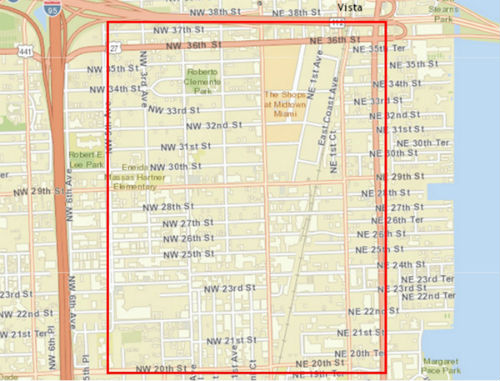According to the history travel warning from the Centers from Disease Control and Prevention:
- Pregnant women should not travel to this area.
- Pregnant women and their partners living in or traveling to this area should follow steps to prevent mosquito bites.
- Women and men who live in or traveled to this area and who have a pregnant sex partner should use condoms or other barriers to prevent infection every time they have sex or not have sex during the pregnancy.
- All pregnant women in the United States should be assessed for possible Zika virus exposure during each prenatal care visit.
- Pregnant women who live in or frequently travel to this area should be tested in the first and second trimester of pregnancy.
- Pregnant women with possible Zika exposure and signs or symptoms of Zika should be tested for Zika.
- Pregnant women who traveled to or had unprotected sex with a partner that traveled to or lives in this area should talk to their healthcare provider and should be tested for Zika.
On Monday, August 1, 2016, for the first time in American history, the Centers for Disease Control and Prevention (CDC) has warned people not to travel to a specific American neighborhood for fear of catching an infectious disease, according to agency spokesman Tom Skinner. The neighborhood in Miami is called Wynwood (See Figure). The New York Times called it “a crowded, urban neighborhood in north Miami where all the cases were found. The reason that the warning is for this precise, small area is due to the fact that the Zika-carrying mosquitoes, the Aedes aegypti and the Aedes albopictus, fly no more than about 500 meters in a lifetime.

(Source: Centers for Disease Control and Prevention/Public Domain.)
The specific details of the CDC warning are as follows:
The Florida Department of Health has identified an area in one neighborhood of Miami where Zika is being spread by mosquitoes. The most recent CDC guidance is for people who live in or who have traveled to this area any time after June 15 (based on the earliest time symptoms can start and the maximum 2-week incubation period for Zika virus).
Pregnant women and their partners:
- Pregnant women should not travel to this area.
- Pregnant women and their partners living in or traveling to this area should follow steps to prevent mosquito bites.
- Women and men who live in or traveled to this area and who have a pregnant sex partner should use condoms or other barriers to prevent infection every time they have sex or not have sex during the pregnancy.
- All pregnant women in the United States should be assessed for possible Zika virus exposure during each prenatal care visit.
- Pregnant women who live in or frequently travel to this area should be tested in the first and second trimester of pregnancy.
- Pregnant women with possible Zika exposure and signs or symptoms of Zika should be tested for Zika.
- Pregnant women who traveled to or had unprotected sex with a partner that traveled to or lives in this area should talk to their healthcare provider and should be tested for Zika.
Couples thinking about getting pregnant:
- Women with Zika should wait at least 8 weeks and men with Zika should wait at least 6 months after symptoms began to try to get pregnant.
- Women and men who live in or frequently travel to this area should talk to their healthcare provider.
- Women and men who traveled to this area should wait at least 8 weeks before trying to get pregnant.
Unprecedented Warning
The Centers for Disease Control and Prevention issued the unprecedented travel warning advising pregnant women and their partners not to travel to this small community near downtown Miami where Zika is actively circulating. This week, 11 additional people in Florida were found to have been infected with Zika virus after being bitten by local mosquitoes, bringing the total to 15.
New cases were found by door-to-door surveys of 200 people in their homes and businesses, and they were identified by urine and blood samples that tested positive for the virus or an antibody, according to information released by the CDC.
Florida health officials had previously confirmed that 4 people had contracted Zika from mosquitoes in the same 150-square-meter area. According to CDC Director Tom Frieden, MD, the topography and mixed-use patterns of the urban area said complicate mosquito control efforts.

“New test measurements over the weekend showed a risk of continued active transmission in that area,” said Dr. Frieden. “Because of this finding, we are advising pregnant women not to travel to that area and if they have traveled there on or after June 15 to visit their health care provider for testing.”
June 15 is the earliest day that local health officials believe the mosquitoes could have passed the virus, which they would have obtained by biting a person in the U.S. who already had the disease. Because about 80% of people with Zika have no symptoms, it's possible that the first person infected in the U.S., person zero, did not know that they were infected or infectious.
“With 40 million travelers to and from areas where Zika is actively circulating, many can come back who feel perfectly fine,” Dr. Frieden explained. “But the virus could be hitchhiking in their blood. That's why everyone who travels to one of those areas should use insect repellent for at least 3 weeks after they return.”
Additional Precautions
Additional precautions recommended by the CDC about the Miami outbreak include:
- Pregnant women who live in or travel to the area should be tested for Zika infection in the first and second trimesters of pregnancy, even if they have no symptoms of the virus.
- Pregnant women and their male and female partners who live in the area should prevent mosquito bites and use proper sexual protection for the length of the pregnancy, or abstain from sex altogether.
- Male or female partners of pregnant women who have traveled to this area should use safe sex measures for the rest of the pregnancy.
- Women and men who have traveled to the affected area should wait eight weeks to conceive after their return, while men with symptoms should wait a full six months.
“Following today's announcement, I have requested that the Centers for Disease Control activate their emergency response team to assist the Department of Health in their investigation,” explained Florida Governor Rick Scott. “Their team will consist of public health experts whose role is to augment our response efforts to confirmed local transmissions of the Zika virus.”

CDC personnel are already on the ground in Florida, Dr. Frieden said, with more members of the community emergency response team continuing to arrive. Their first task will be to understand why local mosquito control efforts failed.
“In Miami, aggressive control measures are not working as well as we would like,” Dr. Frieden noted. “The mosquitoes could be resistant to the pesticides being used, or the mosquitoes could be hiding in what we call 'cryptic' breeding places that are hard to find, like very small amounts of water where they can hatch.
“The Aedes aegypti is a really tough mosquito to control,” Dr. Frieden added. “When Key West had an outbreak of dengue, which is carried by the same mosquito, that outbreak continued for more than a year. It's a demonstration of how intensive the efforts need to be to control the mosquito.”
